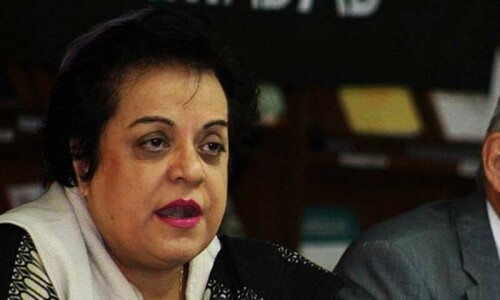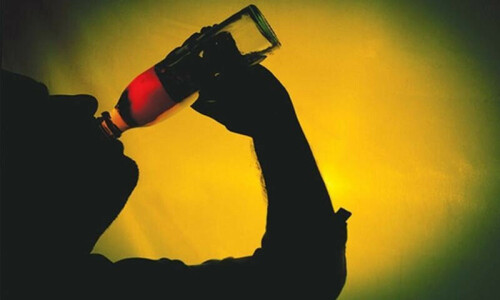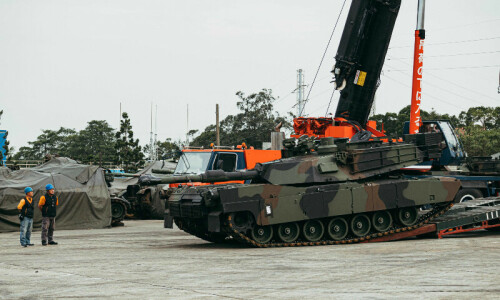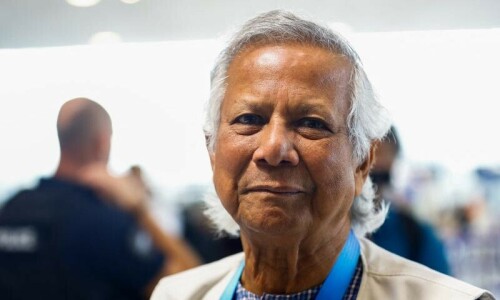
Going by the results of all the elections between 1972 and 1997, no single political party or leader in Kohat has been able to retain the National Assembly seat (NA-16) twice, except for prominent constitutional expert Syed Iftikhar Hussain Gilani. This defies the general perception that the constituency belongs to conservative parties.
The voting trend in Kohat strengthens the belief, however, that voters prefer personality to party affiliation. Mr Gilani, who has generally been affiliated with the PPP, won the seat from the platform of the Pakistan Democratic Alliance (PDA) in 1990 and retained the seat in 1993 on a PML-N ticket. Subsequently, he was a runner-up in the 2002 general elections. The PML-N had the seat in the 1997 general elections when its candidate Javed Ibraheem Paracha, who has now quit politics, returned to the National Assembly.
Now, the ANP - which put a dent in the winnings of the Muttahida Majlis-i-Amal (MMA) in the 2008 elections — is likely to face defeat at the hands of the PTI and the PPP, say observers.
In NA-16, the position of former district nazim Malik Asad Khan appears to be quite strong as compared to the PTI nominee, Shehyar Afridi, and the PPP’s Pir Dilwar Shah. The latter won the seat on an ANP ticket in 2008.
Malik Asad was actually very close to wining the seat on a PPP ticket in 2008, when he quit the party two days before the elections and contested the polls as an independent candidate. He had developed differences with Benazir Bhutto over the allotment of a provincial assembly ticket.
In PK-37, Kohat-I, a tough contest is expected between the PTI’s Nawabzada Alamzeb Khan and Ghulam Habib of the Jamiat Ulema-i-Islam-Fazal (JUI-F). The latter is the father of Shaukat Habib, who won the seat in 2002.
In 2008, new candidate Amjid Afridi defeated Nawabzada Alamzeb Khan and won the seat as an independent candidate. He later joined the ANP government as a housing minister. He has fielded his father from NA-16, while his brother is already a senator and a state minister for trade and he seems in no mood to ally with anyone else.
In PK-38, Kohat-II, an interesting contest will be witnessed between the PPP’s Syed Qalbe Hassan, who has been a member of the provincial assembly twice since 2002, Malik Iqbal of the PML-N and Amjid Afridi, who is an independent candidate and has filed nomination papers from two constituencies. A very tough contest is expected on this seat due to entry of Malik Iqbal and Amjid Afridi.
Mr Hassan’s maternal uncle, former chief justice of the Peshawar High Court, Syed Ibne Ali, is also in the arena and will contest the elections against Qalbe Hassan on an ANP ticket. In 2002, Qalbe Hassan had contested elections on an ANP ticket and won. He was later expelled from the party for selling his vote in Senate polls. But the party kept him as deputy parliamentary leader in the assembly in order to keep their position intact. His runner-up in 2002 was Gohar Saifullah Khan of the PML-Q, who is now contesting the election on a JUI-F ticket.
In PK-39, Kohat-III, Advocate Imtiaz is to face former MPA Dr Iqbal Din Fana of the Jamaat-i-Islami.
In the past, the late Khanzada Shad Muhammad Khan of the PPP-Sherpao was elected from this constituency. He was followed by Dr Iqbal Din Fana, who returned as an MPA the in 2008 elections. In those polls, the ANP’s Pir Dilwar Shah ousted Mufti Ibrar Sultan of the MMA who had won the seat along with other colleagues from the JUI-F.
Before the creation of Hangu and Karak as separate districts carved out of Kohat district, former federal minister Aslam Khan Khattak (who was considered a right-hand man of Gen Ziaul Haq) won the NA seat.
From Hangu, the most volatile district of Khyber Pakhtunkhwa, Akhunzada Mohammad Siddique (JUI-F) was elected MNA in 1993, while Ghaniur Rehman (PPP) and Qari Abdullah of (JUI-F) had returned to the provincial assembly.
As a minister for irrigation, Mr Rehman played a key role in getting a separate district status for Hangu in 1996.
In 2002, Shah Abdul Aziz was elected as an MNA from Karak on an MMA ticket at a time when the war against Al Qaeda was at its peak.












































